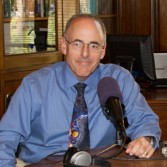Join us for a live webcast about thrilling new tools that will come online in the next decade.
Posted By Mat Kaplan
 Keck. Hubble. VLA. Kepler. They may not quite be household words,
but those of us who follow astronomy know and love them. They and
their sister instruments around the world (as well as above it) have
opened awe-inspiring new vistas of our universe. They have also
pioneered new technologies that are now ready for even greater
accomplishments.
Keck. Hubble. VLA. Kepler. They may not quite be household words,
but those of us who follow astronomy know and love them. They and
their sister instruments around the world (as well as above it) have
opened awe-inspiring new vistas of our universe. They have also
pioneered new technologies that are now ready for even greater
accomplishments.Yet another generation of telescopes is on the horizon. They will expand our reach by orders of magnitude, revealing still more secrets of the cosmos, possibly including some that we don't begin to suspect. I hope you'll join me when I talk with men and women who are helping to inaugurate this new age. Each is on the team for a great observatory that is now taking shape:
Richard Ellis, Ph.D.: Steele Professor of Astronomy at the California Institute of Technology; astronomer and member of the Thirty Meter Telescope Board.
Fiona Harrison, Ph.D.: Principal Investigator for NuSTAR, NASA’s Nuclear Spectroscopic Telescope Array; Benjamin M. Rosen Professor of Physics and Astronomy at the California Institute of Technology.
Juna Kollmeier, PhD., Astronomer at the Observatories of the Carnegie Institution of Washington in Pasadena, working on the Giant Magellan Telescope.
Kartik Sheth, Ph.D.: Associate Astronomer at the National Radio Astronomy Observatory, former ALMA Commissioning & Science Verification Liaison. ALMA is the Atacama Large Millimeter/submillimeter Array.
The conversation will be part of the NEXT Science|People|Tomorrow series I host for Southern California Public Radio/KPCC. Seats in the Crawford Family Forum at SCPR's Pasadena, California headquarters are free, but must be reserved at http://www.scpr.org/events/2013/05/30/next-eyes-on-the-universe/ . You can still join us even if you won't be in Southern California. Watch the live webcast that will be available on the same webpage.
We begin at 7:00pm Pacific Daylight Time on Thursday, May 30th. Clear skies.
Source
No comments:
Post a Comment
Note: Only a member of this blog may post a comment.